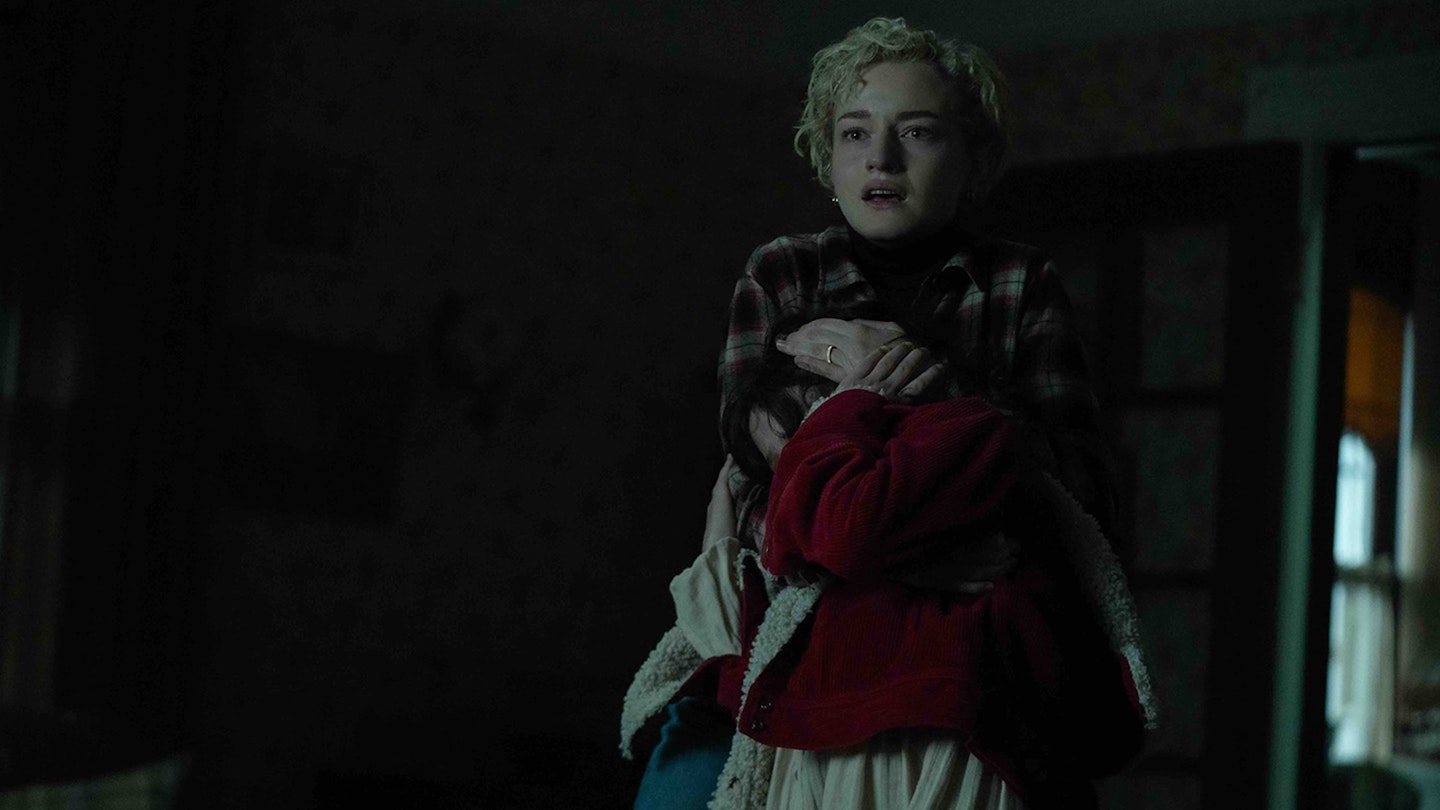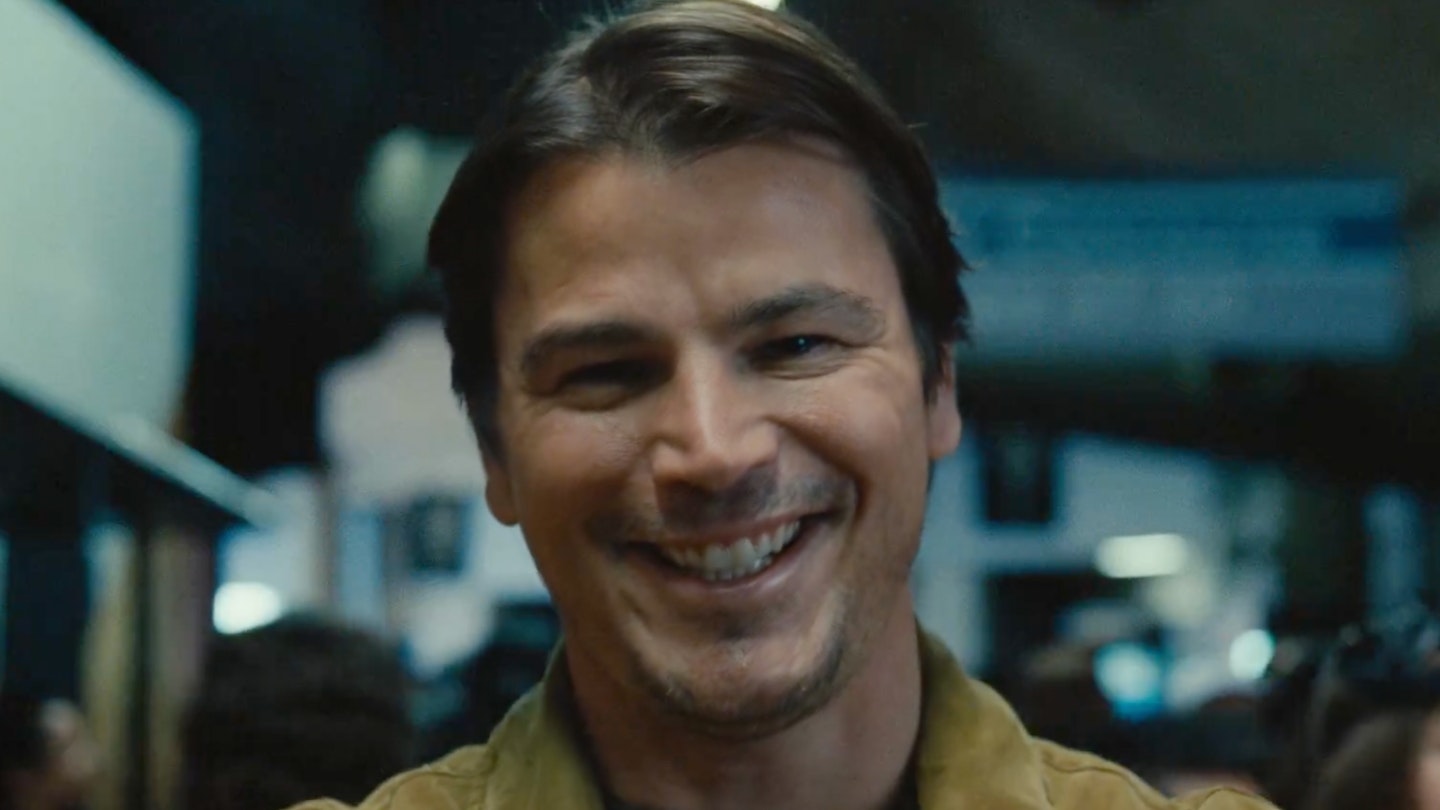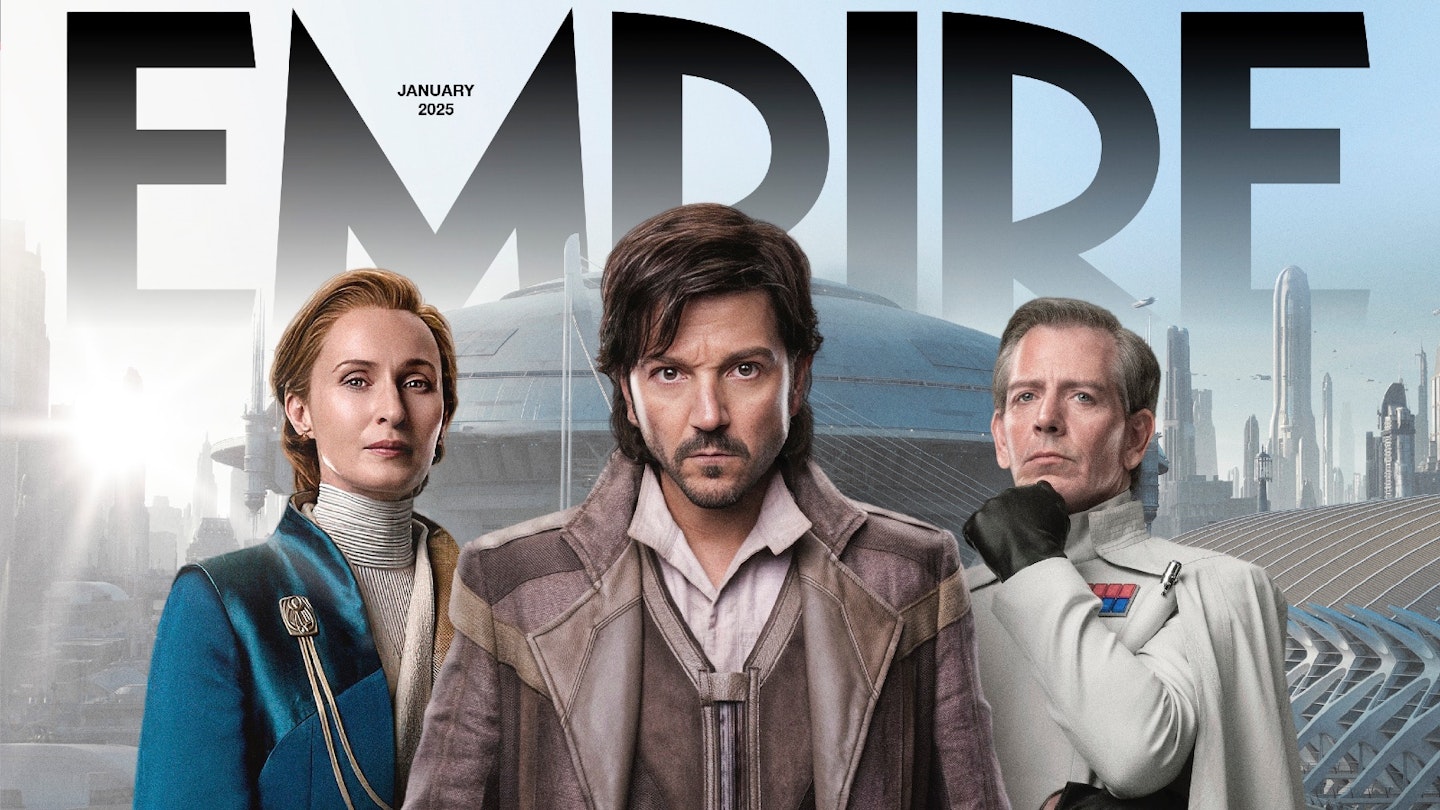Leigh Whannell is back in Universal’s world of classic monsters. Following 2020’s The Invisible Man, the filmmaker returns with Wolf Man, a new, modern take on the 1941 Gothic horror. It follows Blake (Christopher Abbott, replacing original star Ryan Gosling), a family man whose marriage to journalist Charlotte (Julia Garner) has hit a rough patch, his career on pause while he takes on the role of stay-at-home dad to their young daughter Ginger (Matilda Firth). After receiving notice that his long-missing father has been declared officially deceased, Blake and family head to his childhood home, a remote farm in the forests of Oregon, to pack up the deceased patriarch’s belongings. Upon arrival, they’re attacked by a mysterious creature – and soon, Blake himself begins to transform.

What made Whannell’s The Invisible Man so effective was the perfect pairing of monster and metaphor – the crazy-making experience of a man who can only be sensed, not seen, stalking his victim of domestic abuse. Wolf Man, in this sense, is more of a mish-mash. Blake’s metamorphosis represents multiple things – generational trauma, both passing it on and fighting against it; degenerative disease; the breakdown of a relationship. Each are meaty, emotional subjects, and Blake’s gradual shift into something that feels a connection to his family but invokes fear in them is evocative. The issue is the film’s inconsistency in how it plays into that – Charlotte’s reaction to her husband’s increasingly animalistic appearance veers from pity and understanding to all-out screaming in ways that don’t always make sense.
Plenty of wince-inducing gnarly moments.
It’s when Wolf Man does lean into the horror that it really sings, though. Whannell builds tension from the off, taking a setting that could be beautiful (the forest) and making it truly terrifying – pitch-black, vast and claustrophobic in equal measure, full of creaks and groans and growls (the sound design is remarkable and chilling). The jump-scares work, and the prosthetics – while at times distracting – are impressive, with plenty of wince-inducing gnarly moments. Whannell is inventive with the camera, swinging it to mimic Blake’s disorientation, and lets the audience see the world through his changing eyes by switching into a kind of ‘wolf-vision’. It’s brighter, luminescent, and Charlotte and Ginger’s faces become distorted, speaking a language Blake no longer understands. It feels fresh and is deployed to great effect.
Abbott commits entirely to all stages of the role, conveying a loving father with darkness lurking within – even before he turns wolfy. Firth is charming, as is the tenderness in Ginger and Blake’s relationship. Garner’s Charlotte is the piece that feels like it doesn’t quite fit, but in a way, that plays into the character’s arc. Despite some clunky dialogue and turns you’ll see coming, the script still finds its way to a heartfelt ending. Far from a howler.







